The University of La Verne has awarded seven university faculty members with Randall Lewis Center for Well-Being and Research Faculty Research Fellowships for the 2023-2024 academic year. This fellowship award is funded by donor Randall Lewis and furthers the center’s mission to support interdisciplinary wellness research inside the University of La Verne and the surrounding region. Faculty applied from diverse fields of study to reinforce co-learning through intersectional disciplines. Recipients were selected by a committee of well-being experts outside the University of La Verne. Fellowship recipients and research topics are as follows:
Victor Carmona
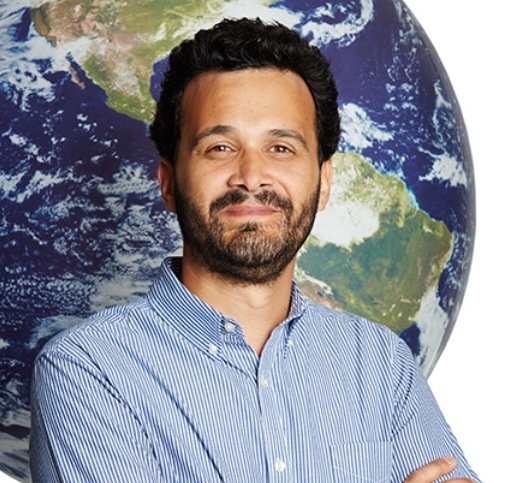 Bio: Dr. Víctor Carmona is a Professor of Biology at the ULV College of Arts and Sciences, as well as a Research Associate with the Center for Ecological Health Research (CENSALUD) at the University of El Salvador. Dr. Carmona has a Ph.D. in Ecology and Evolutionary Biology, has served three times as a Fulbright Scholar in Latin America, and undergraduate students in his research lab have gone on to conduct field-projects abroad through the Fulbright U.S. Student Program as well as Engineers without Borders. Dr. Carmona maintains active research projects in Costa Rica, El Salvador, Mexico, as well as the U.S., and regularly publishes scholarly articles with undergraduate co-authors. He joined University of La Verne in January 2023 and spearheads teacher-scholar initiatives that engage local community partners to champion environmental justice.
Bio: Dr. Víctor Carmona is a Professor of Biology at the ULV College of Arts and Sciences, as well as a Research Associate with the Center for Ecological Health Research (CENSALUD) at the University of El Salvador. Dr. Carmona has a Ph.D. in Ecology and Evolutionary Biology, has served three times as a Fulbright Scholar in Latin America, and undergraduate students in his research lab have gone on to conduct field-projects abroad through the Fulbright U.S. Student Program as well as Engineers without Borders. Dr. Carmona maintains active research projects in Costa Rica, El Salvador, Mexico, as well as the U.S., and regularly publishes scholarly articles with undergraduate co-authors. He joined University of La Verne in January 2023 and spearheads teacher-scholar initiatives that engage local community partners to champion environmental justice.
Project: (with Dr. Jennifer Clarke) Characterizing the Natural History of Chagas Disease in Foothills of the San Gabriel Valley
Research Description: Chagas disease, known as American trypanosomiasis, is a tropical infectious ailment caused by the protozoan parasite Trypanosoma cruzi. First described by Brazilian physician Dr. Carlos Chagas in 1909, this disease originates from the interplay between these parasites and the bloodstream and lymphatic systems of mammalian hosts. Transmitted through the nocturnal Triatomine bug, commonly referred to as “kissing bugs,” the parasite’s life cycle involves ingestion, maturation within the bug’s gut, and eventual release in its feces. Often defecating near the bite wound, these bugs inadvertently introduce parasite-laden feces into the host’s system, potentially leading to severe consequences. Beyond vector-borne transmission, Chagas disease can also spread congenitally, through nursing, or via ingestion of infected bugs or contaminated food. Our study will characterize the ecological dynamics of host-parasite-vector interactions of Chagas disease across the Foothills of the San Gabriel Valley in eastern Los Angeles County, which form part of the Transverse Ranges System of Southern California. We will assess the prevalence of T. cruzi infections in woodrat and coyote feces, as well as in T. protracta vectors captured in woodrat dens. Using advanced PCR techniques, we will identify parasite infections and determine the vectors’ bloodmeal sources. Additionally, camera traps will verify the presence of woodrats and coyotes and assess microhabitat preferences of the vectors. Biophysical characteristics of woodrat dens will be correlated with T. protracta morphology. Machine learning algorithms will be used to predict potential habitat distributions of infected T. protracta. The research project explores insights into localized disease prevention strategies. Understanding local vector ecology is pivotal in developing successful interventions. The findings may also inform predictions about the disease’s expansion due to climate change. The project seeks to foster interdisciplinary collaborations and student mentorship, enriching biology education and contributing to the ULV’s commitment to research excellence.
Jennifer Clarke
 Bio: Dr. Jennifer A. Clarke is the Fletcher Jones Endowed Chair of Biology in the Biology Department at the University of La Verne. Her research in zoology focuses primarily on two areas of behavioral ecology: animal communication and the effect of nocturnal light on animal behavior. Her work is widely published both nationally and internationally and includes studies ranging from the effect of moonlight on owl behavior to communication in Tasmanian devils. She has served on the National Science Foundation Council on Research, the NSW Royal Zoological Society, and she is a reviewer for multiple scientific journals. Prior to Dr. Clarke becoming part of the ULV faculty in Fall 2022, she was a full professor at the University of Northern Colorado, Macquarie University (Sydney, AUS) and Maine’s Unity College. She earned a Ph.D. in Zoology at Washington State University, a MA in Zoology at University of Montana, and a BA in Zoology at Miami University of Ohio.
Bio: Dr. Jennifer A. Clarke is the Fletcher Jones Endowed Chair of Biology in the Biology Department at the University of La Verne. Her research in zoology focuses primarily on two areas of behavioral ecology: animal communication and the effect of nocturnal light on animal behavior. Her work is widely published both nationally and internationally and includes studies ranging from the effect of moonlight on owl behavior to communication in Tasmanian devils. She has served on the National Science Foundation Council on Research, the NSW Royal Zoological Society, and she is a reviewer for multiple scientific journals. Prior to Dr. Clarke becoming part of the ULV faculty in Fall 2022, she was a full professor at the University of Northern Colorado, Macquarie University (Sydney, AUS) and Maine’s Unity College. She earned a Ph.D. in Zoology at Washington State University, a MA in Zoology at University of Montana, and a BA in Zoology at Miami University of Ohio.
Project (with Dr. Victor D. Carmona-Galindo): Characterizing the Natural History of Chagas Disease in Foothills of the San Gabriel Valley
Research Description: Chagas disease (American trypanosomiasis) is an infectious disease that is caused by a protozoan parasite, Trypanosoma cruzi. Left untreated, the disease can cause enlargement of the esophagus and colon and hear t failure. The parasites are transmitted from infected hosts to uninfected organisms by an insect vector that feeds on blood, the Triatomine bug. Chagas disease is triggered when Trypanosome parasites (transmitted by the insect vector) enter the bloodstream. Our study will characterize the ecological dynamics of host-parasite-vector interactions of Chagas disease across the Foothills of the San Gabriel Valley in eastern Los Angeles County, California. We will use Polymerase Chain Reaction techniques to evaluate the prevalence of T. cruzi parasite infections in the feces of potential host species (woodrats and coyotes) and in the potential T. protracta vectors in and around woodrat dens. We will deploy specialized camera-traps to locate and evaluate the distribution of woodrats and coyotes. We will also quantify the biophysical characteristics of woodrat dens to evaluate the microhabitat preferences of T. protracta.
Issam Ghazzawi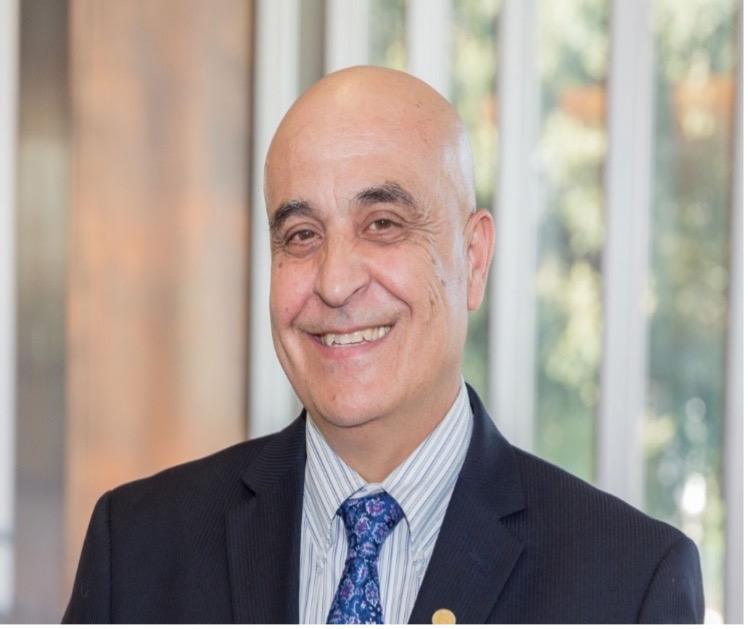
Bio: Issam A. Ghazzawi, Ph.D. is the Distinguished Professor of Management and the Sam Walton Fellow at the University of La Verne. Professor Ghazzawi offers courses in organizational design, organizational theory, organizational behavior, and management. He received his Ph.D. from the University of Pittsburgh; his Master’s in Labor and Human Resources (M.L.H.R.) from The Ohio State University; and his Master in Business Administration (MBA) from Sul Ross State University. He is the past president of the Western CaseWriters Association and he currently serves on the Editorial Review Board of several academic journals. He frequently lectures at various international universities, including the Beijing Institute of Technology “BIT”. He is the director of the REACH/Fleischer Business Program. The purpose of this program is to provide underserved/first-generation high school students the opportunity to pursue college in general and business education in particular. He is also the advisor of the Enactus Program. Dr. Ghazzawi received numerous distinguished research, academic, and community awards and recognitions including:
- The Pomona Unified School District’s Board of Education’s Certificate of Recognition, June 2023.
- Faculty of Distinction Award, October 2022.
- The Distinguished Research Award, April 2022. The Institute for Global Business Research. New Orleans, Louisiana.
- Research Fellow Award. April 2022. The Institute for Global Business Research.
- The Congress of the United States House of Representatives Certificate of Special Congressional Recognition for Excellence in Environmental Leadership (September 2021).
- California State Senate Certificate of Recognition (July 2021).
- The Distinguished Research Award from the Institute for Global Business Research (New Orleans, Louisiana: April 2019).
- The Congress of the United States House of Representatives Certificate of Special Congressional Recognition for Excellence in Environmental Leadership (November 2018).
- California State Assembly Excellence in Community Leadership Award (November 2018); County of Los Angeles Commandment for Excellence in Environmental Leadership (November 2018).
- The Inland Valley News Excellence in Community Leadership Award (November 2018).
- The 2018 Jack Kahl Entrepreneurial Leadership (May 2018).
- The Pomona Board of Education Service Award (May 2018).
- The City of Pomona Certificate of Recognition (May 2018).
- The Riverside County Board of Supervisors Certificate of Recognition (November 2017).
- The Inland Empire Hispanic Leadership Council Certificate of Appreciation (November 2017);
- The Distinguished Research Award from the Institute for Global Business Research (April 2019).
- The Best Paper Award from the International Research Exchange Conference (at the Chinese University of Hong Kong, April 2017).
- The La Verne Academy “ULV Academy”, is a prestigious academy dedicated to collegial leadership in research and scholarship (2016).
- The Distinguished Research Award from the Academy of Organizational Culture, Communications, and Conflict (JOCCC) (2015).
- The Distinguished Research Award from the International Academy for Case Studies (2015).
- The Best Case Award (Café Britt: A Costa Rica Pride) from the Western Case Writers Association (March 2013).
- The State of California Assembly Certificate of Recognition (2013); the County of San Bernardino Board of Supervisors Certificate of Recognition (2013).
- The Best Presenter Award from the International Business, Finance, and Economics Research Conference (2012).
- The State of California Assembly Certificate of Recognition (2012).
- The Drs. Joy and Jack McElwee Excellence in Research Award (2012);
- The Ahmad Ispahani Excellence in Teaching Award (2010); the University of La Verne’s “Young Scholars Award” (2010).
- The State of California Assembly Certificate of Recognition (2010, 2012, & 201.).
- The County of San Bernardino Board of Advisors’ Certificate of Recognition (2013).
- The Distinguished Research Award from the Academy of Organizational Culture, Communications, and Conflict (JOCCC) (2010).
- The Academy of Educational Leadership’s Award for Innovative and Creative Teaching (2009); the Distinguished Research Award from the Academy of Organizational Culture, Communications, and Conflict (JOCCC) (2009).
- The Distinguished Research Award from the International Business and Economics Research Conference (2009).
- The Distinguished Research Award from the International Business and Economics Research Conference (2008).
- The Rotary Foundation of the Rotary International “Paul Harris Fellow Award” (2008);
- The University of La Verne “Ellsworth Johnson Faculty Service Award” (2008).
- The University of La Verne “Excellence in Teaching Award” (2005).
Project: (With Dr. Fengmei Gong) In the Eyes of the Beholders: Post Covid-19 and Organizational Commitment in the US
Research Description: The COVID-19 pandemic rapidly changed how people and organizations function. For many, it is the most drastic shift in our life since the industrial revolution as it created increased uncertainty and posed threats to organizations and their employee’s performance and viability. This study investigates the impact of Covid-19 on people’s commitment to their organizations and to what degree it was affected, if at all. Additionally, the current research investigates the consequences of commitment or its lacking to employees and their organizations. The analysis is based on an unstructured survey of employees, managers, and executives from various organizations and industries in the US. Study findings in the aftermath of Covid-19 might help illuminate the knowledge regarding commitment causes, and effects. It also provides implications for practitioners, academics, and community well-being.
Marcia Godwin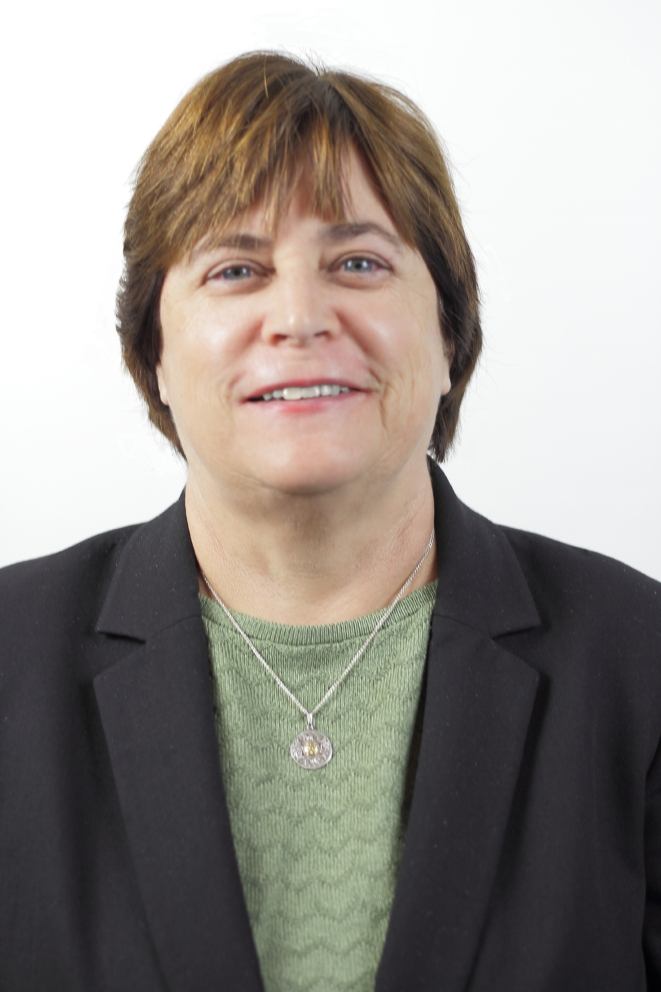
Bio: Dr. Marcia L. Godwin is a Professor of Public Administration at the University of La Verne. Godwin has also served as Master of Public Administration Director (2015-2022) and Institutional Review Board Director (2011-2014). She is a longtime contributor to The Roads to Congress series and became a coeditor in 2016. Her research has been published in Administrative Theory and Praxis; Journal of Public Affairs Education; Policy Studies Journal; Politics, Groups, and Identities; State and Local Government Review; Teaching Public Administration; and other publications. She also has served as coeditor and contributor, with Sean D. Foreman, of Local Government and Mayoral Elections in 21st Century America: The Keys to City Hall (Routledge 2015). She provides commentary on California politics and local government issues to regional, national, and international media. Prof. Godwin was inducted into La Verne Academy in 2020 and is currently serving as its vice president.
Project: Threats, Protests, and the Pandemic: Impacts on Local Government Emotional Labor and Well-Being
Research Description: There are increasing concerns about the rise of threats and harassment against public officials, the emotional labor required in public service, and the well-being of local government professionals. The COVID-19 pandemic increased the level of emotional labor required to carry out responsibilities and the number of protests by the public and employee groups. This research extends research on these issues to entry-level and mid-level local government public professionals who have been on the front line of public service through a survey questionnaire and follow-up interviews. The research also identifies promising strategies and programs for individual public service professionals, local government organizations, and professional organizations. Therefore, the findings will be shared through both professional organizations and academic venues.
Marcia L. Godwin, Professor of Public Administration, mgodwin@laverne.edu
Fengmei Gong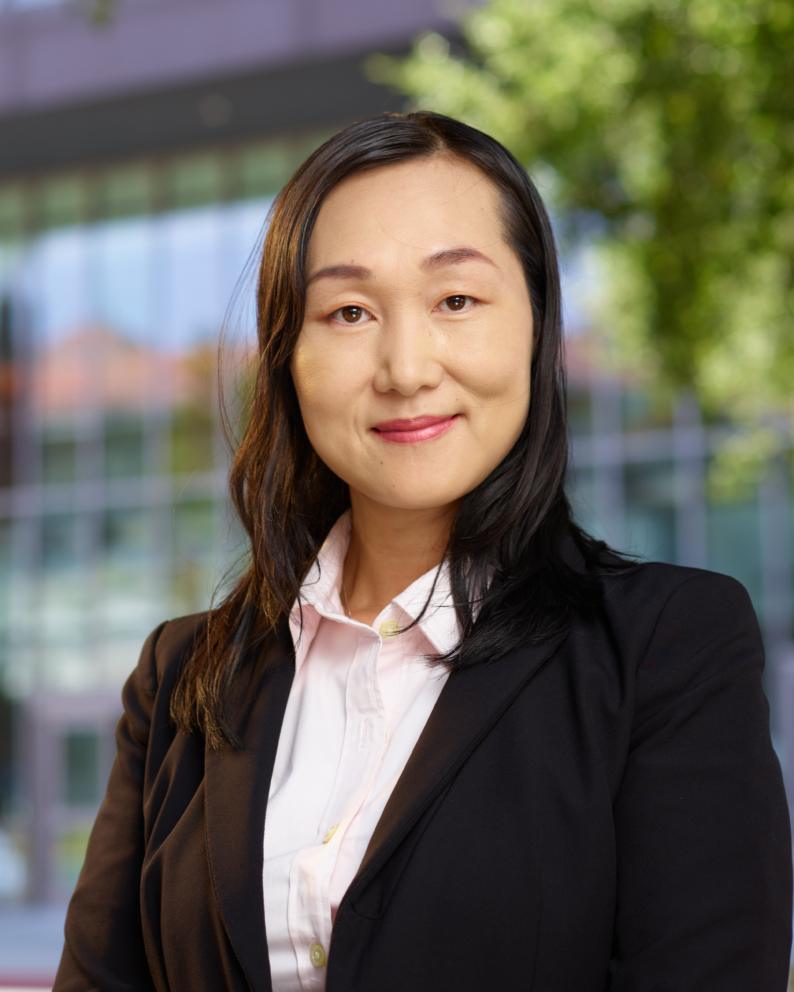
Bio: Dr. Fengmei Gong is currently a tenured Associate Professor of Operation & Information Technology (IT) at the University of La Verne. She received her PhD in Management Information Systems from the University of Calgary in Canada in 2015. She also earned a PhD in Management Science from Huazhong University of Science & Technology in China in 2008. She has taught courses about Management Information Systems, Management of Information Technology, and Analytics in Supply Chain and Logistics Management, Data Mining and Predictive Analytics for undergraduates and graduates in China, Canada, and the United States since 2003. Her research focuses on Economics of Information Systems, IT Productivity, the business value of IT, business analytics, and IT and supply chain management interdisciplinary topics. She has published papers at prestigious journals including Information Systems Research, International Journal of Production Economics, Decision Support Systems, Information & Management, among others. She has applied economics methodologies to examine how information technologies affect organization performance, such as productivity, technical efficiency, etc. For example, in one of her papers she studied the relationship between IT and outsourced logistics in a production function and found that after the commercialization of the Internet, an industry’s own IT investment and outsourced logistics became complements, whereas they were not before. Recently, she is interested in the application of data analytics in different areas. She is interested in applying data mining and machine learning methodologies to uncover hidden patterns and build models to predict future events for better decision-makings and improved organizational performance.
Project: (With Dr. Issam Ghazzawi) In the Eyes of the Beholders: Post Covid-19 and Organizational Commitment in the US
Research Description: The COVID-19 pandemic rapidly changed how people and organizations function. For many, it is the most drastic shift in our life since the industrial revolution as it created increased uncertainty and posed threats to organizations and their employee’s performance and viability. This study investigates the impact of Covid-19 on people’s commitment to their organizations and to what degree it was affected, if at all. Additionally, the current research investigates the consequences of commitment or its lacking to employees and their organizations. The analysis is based on an unstructured survey of employees, managers, and executives from various organizations and industries in the US. Study findings in the aftermath of Covid-19 might help illuminate the knowledge regarding commitment causes, and effects. It also provides implications for practitioners, academics, and community well-being.
Louise Kelly
 Bio: Dr. Louise Kelly, PhD, is a Professor of Management and Leadership at the University of La Verne. Her reputation comes from her expertise in strategy and leadership, as she passionately empowers diverse individuals and organizations to unlock their management, leadership, and innovation potentials. She has authored impactful books like “A Dictionary of Strategy” and “Entrepreneurial Women: New Leadership and Management Models,” complementing her prolific output of over 100 articles and conference papers. Notably, her recent work, “Mindfulness for Authentic Leadership: Theory and Cases,” explores integrating mindfulness into leadership practices. Her global influence extends to executive training programs worldwide and collaborations with the Institute for Management Studies, where she excels as a trainer in innovation and creativity. Proficient in French, Spanish, and English, she engages diverse audiences. Her visibility extends through Forbes.com, where her research on strategy and mindfulness is showcased, along with prominent features in videos tackling entrepreneurship and team management. Her sought-after insights lead to appearances on management-focused podcasts.
Bio: Dr. Louise Kelly, PhD, is a Professor of Management and Leadership at the University of La Verne. Her reputation comes from her expertise in strategy and leadership, as she passionately empowers diverse individuals and organizations to unlock their management, leadership, and innovation potentials. She has authored impactful books like “A Dictionary of Strategy” and “Entrepreneurial Women: New Leadership and Management Models,” complementing her prolific output of over 100 articles and conference papers. Notably, her recent work, “Mindfulness for Authentic Leadership: Theory and Cases,” explores integrating mindfulness into leadership practices. Her global influence extends to executive training programs worldwide and collaborations with the Institute for Management Studies, where she excels as a trainer in innovation and creativity. Proficient in French, Spanish, and English, she engages diverse audiences. Her visibility extends through Forbes.com, where her research on strategy and mindfulness is showcased, along with prominent features in videos tackling entrepreneurship and team management. Her sought-after insights lead to appearances on management-focused podcasts.
Research Description: Dr. Louise Kelly’s funded research delves into the complex relationship between trust, authentic leadership adoption, and stress levels in marginalized communities. The study investigates how trust influences authentic leadership within diverse contexts and explores the role of stress, employing various metrics including the Organizational Trust Scale, Authentic Leadership Questionnaire, cortisol levels, Heart Rate Variability monitoring, stress surveys, and mindfulness assessments. This research aims to uncover insights that align with the University of La Verne’s values, fostering diverse leadership, and providing practical recommendations for promoting authentic leadership and well-being in historically marginalized groups, with the potential to spark transformative positive change.
Yvette Latunde

Bio: Over the past 23 years Dr. Latunde has dedicated her career to improving conditions for those situated on the margins in education and leadership. Dr. Latunde has come to know what works through a combination of research, experience, and partnerships with BIPOC families and communities. A goal of her work is to center the abundance within individuals, families and communities to solve real-world problems.
Dr. Latunde has supported county offices of education, faith-based organizations, school districts, and non-profits in optimizing their resources to support the genius of diverse (race and neurodivergence) people in schools. She accomplishes this by prioritizing safety and trust in her work. Her approaches to teaching and leading are grounded in andragogy, brain science, and applications of hospitality.
Dr. Latunde has recently published on Black women’s thriving in higher education. She is the author of two books: Equitable by Design, and Research in Parental Involvement. Dr. Latunde is the authored of numerous peer-reviewed publications and her areas of expertise include: Black Family Engagement with education, Neurodiversity in the workplace, and Leading well.
Project: Black Women in Higher Education Leadership: An exploration of restoration.
Research Description: The purpose of this research project is to implement a pilot study that explores the renewal strategies of 75 Black women in leadership. Using a mixed method approach, I plan to explore the relationship between Black women’s Arsenal scores (scaled) and the strategies they use to recover, restore or replenish after a workplace trauma, disappointment, disaster, or adversity (Likert-scaled survey). The study will also describe Black women’s perspectives on what they need to recover in and from hostile work situations (open-ended). The study is guided by the research questions: 1) To what extent does Black women’s renewal strategies impact their stress and well-being, and 2) What do Black women believe they need in order to recover from a workplace threat, trauma or negative event?
This research would serve two main purposes: 1) Help higher education institutions learn how to promote and protect Black women’s resilience, and 2) Provide Black women with specific strategies to replenish and recover from workplace trauma and distress.
Ryan Lee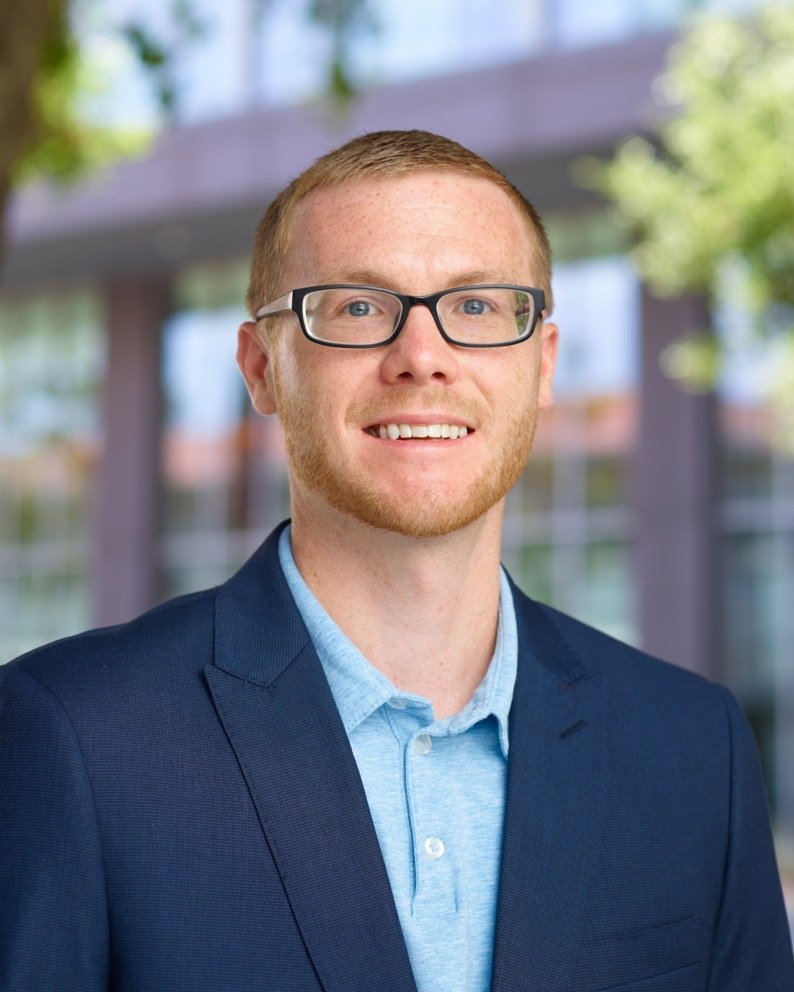
Bio: Ryan Lee is an Assistant Professor of Economics and the Assistant Director of the Honors Program at La Verne. He received his PhD in Economics from Indiana University. His research focuses on international trade agreements and causal inference methodology within the field of applied microeconomics. He has published work in the Journal of International Economics and works in progress on diverse topics such as Deferred Action for Childhood Arrivals (DACA) and Voting Dropboxes. He is also the author of the lecture slides for Greg Mankiw’s Intermediate Macroeconomics textbook.
Project: Importing Gun Violence: US Ports, Crime, and Health
Research description: His project, “Importing Gun Violence: US Ports, Crime, and Health” investigates the role of gun imports on crime and health. The United States imports over 1 billion dollars worth of handguns alone. Previous studies have looked at the within-US origin of guns and the potential impacts on crime. The goal of this study will be to analyze the effect of importing handguns on crime; do ports that process more gun imports see an uptick in crime? Ports offer both opportunities for crime and corruption, with the potential for weapons to flow into the local community.
